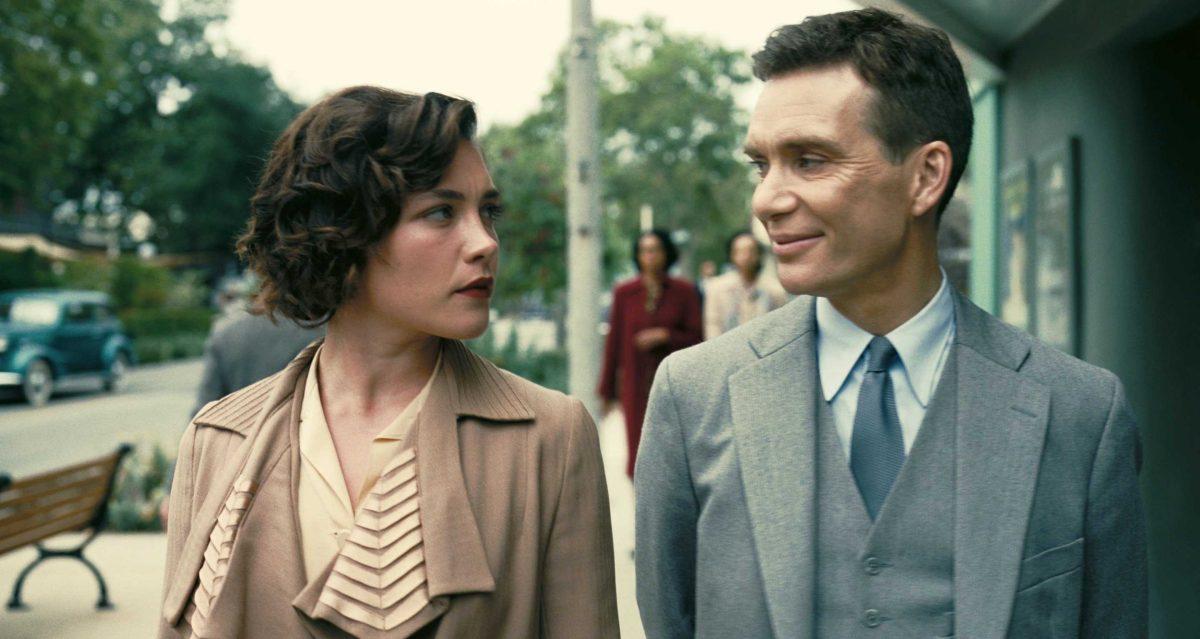Stars: 3.5/5
The story of “The Invisible Man” dates all the way back to 1897, to the original titular novel by English author H.G. Wells. Instantly becoming an iconic character in the canonical history of the horror genre in literature, it only made sense that the story of a scientist, obsessed with making himself invisible but unable to reverse the effects, would become a horror film classic.
Universal Pictures first brought the monster to the big screen in 1933 with “The Invisible Man.” A series of films followed, including a stint with Abbott and Costello in 1951, a Soviet film adaptation in 1984 and a loose interpretation in 2000 with Kevin Bacon called “Hollow Man.” Each adaptation brought its positives and negatives and implemented their own style to the classic story.
Now, “Upgrade” and “Insidious: Chapter 3” director Leigh Whannell brings his tech-savvy and slick style to a modern re-interpretation of “The Invisible Man,” starring “The Handmaid’s Tale” alum Elizabeth Moss as Cecilia Kass, the partner of abusive and manipulative optics pioneer Adrian Griffin (“The Haunting of Hill House’” alum Oliver Jackson-Cohen).
Two weeks after escaping Adrian’s harmful and toxic grasp, Cecilia learns that her ex-boyfriend committed suicide, and that $5 million has been left in her name. Unfortunately, Cecilia, who lives with friend and police officer James (a fantastic Aldis Hodge), feels as though Adrian might not be gone after all.
What follows for the next 124 minutes is a blisteringly tense psychological thriller, featuring some truly immaculate and well thought out camera work, phenomenal performances, and a quietly crescendoing sense of invasion. Though the ending left little to the imagination, and some subplots/character decisions didn’t quite stick the landing, “The Invisible Man” is a solid horror-thriller regardless, and it establishes Whannell as a force to be reckoned with in modern cinema.
As he did with “Upgrade,” Whannell utilizes the camera in a manner than enhances the characters of the film itself. Empty space often takes up a large portion of the frame, and the camera will sometimes pan as if it is following…something…yet nothing is in the frame.
The earlier scenes following Adrian’s death are some of the most tense I have seen in a horror film since “Hereditary,” as we can feel his presence, and Cecilia can feel it, but nobody else even remotely feigns belief.
Production design, music, editing and camera movement all combine together to create a truly unique and clean experience, which works as a way of mirroring the sense of control that Adrian still has over Cecilia’s life.
Everything the technical merits offer this movie are so beautiful and meticulously put together that I found myself enthralled during several sequences; one in particular featured a beautiful one taken through a hospital that featured nearly every aspect of this film that I loved.
Elizabeth Moss is a tour de force as the broken and truly paranoid Cecilia. Every step of the way she questions the reality of her situation, and every step has people denying what she is saying and straight up abandoning her at some points.
Her slow descent into madness is downright heartbreaking, as we slowly start to see the world from her viewpoint and slowly descend into insanity with her. We stare at empty chairs and doorways with her, feeling the utter dread that she does. It is starkly bleak and increasingly effective.
I can’t help but feel as though the ending was written with the possibility of a sequel in mind, as everything wraps up in all too convenient a manner. Several leaps in logic are required in order to believe the plans that characters come up with actually work, and the film dips a little too deeply into the suspension of disbelief in order to truly be a believable tale.
The film also suffers from the typical horror movie ailment of “characters doing dumb things,” as many character decisions ranged from head-scratchers to eye-rolls.
All things considered, “The Invisible Man” works far better than it has the right to. A unique presentation style, terrific performances and a reliance on genuine tension rather than jump scares overcomes an overblown ending and some leaps in logic. Hopefully serving as a flagship for how to reboot an older property, “The Invisible Man” is the first surprise of 2020 and hopefully will start a trend of good horror for the rest of the year.
Rev Ranks: ‘The Invisible Man’ gives classic horror tale fresh coat of paint
March 5, 2020
invisible man
More to Discover











